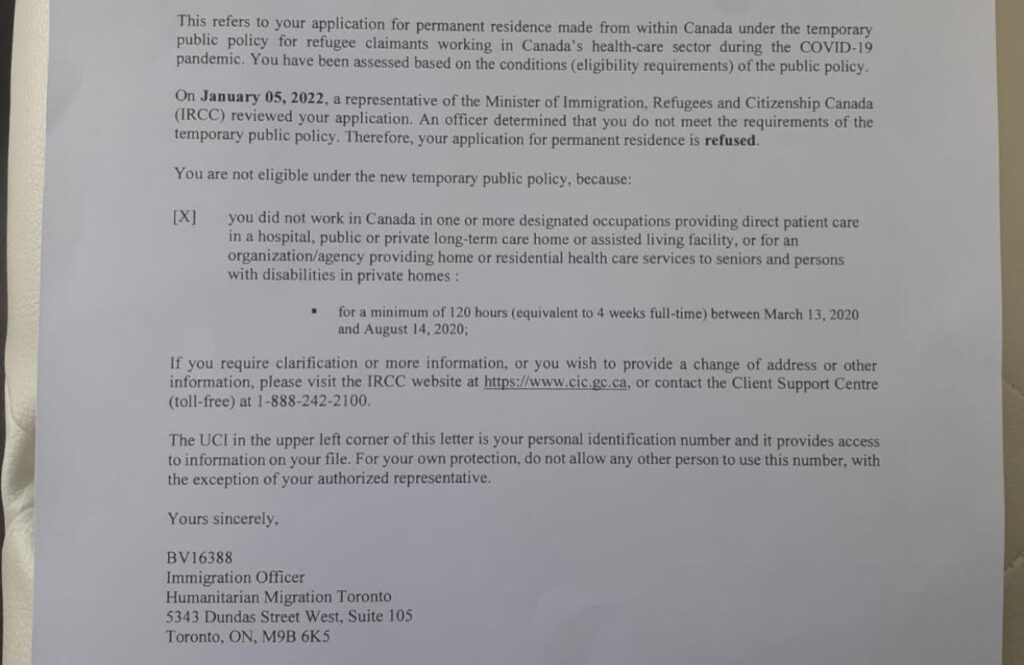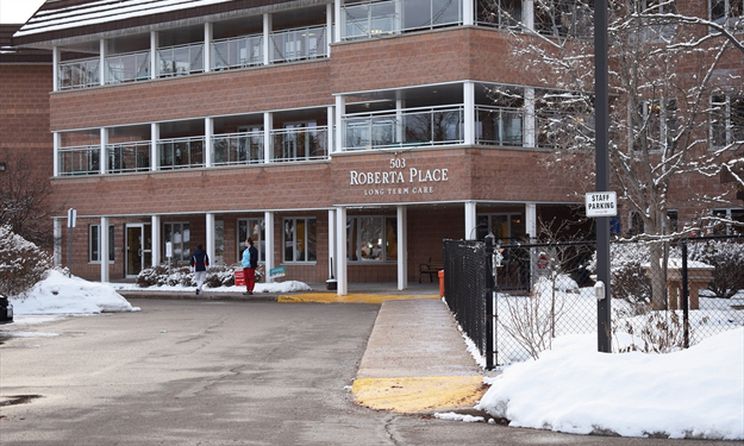TORONTO – Nurses, doctors, and personal support workers, have all been known as “healthcare heroes” since the COVID-19 pandemic began. Throughout the last two years, these professionals have worked tirelessly to care for Canadians during the pandemic, and now, many of them are facing deportation.
Many internationally trained healthcare professionals who came to Canada as refugees worked in long-term care homes, hospitals, clinics, and other facilities, putting their lives on the line while caring for our most vulnerable. The Canadian government even opened up the “Health-care workers permanent residence pathway”, an immigration stream that was supposed to make becoming a permanent resident much easier.
Helen Albert is the founder of Helencare, an agency that employs nurses, PSWs, and other health care professionals, and places them in settings where they are needed. Throughout the pandemic, she placed her employees in various long-term care facilities, clinics, and hospitals across the country.

Helen says that recently, some of her employees have been receiving deportation letters from the government.
“Immigration was saying they don’t have enough hours, so we’d send the timesheet. Then it went from ‘not enough hours’ to ‘oh you don’t qualify, we don’t believe that you qualify’” Helen explained, saying that she can verify that her employees worked over the minimum hours to apply for the program.
Albert says that the government has given her employees various explanations as to why their applications have been rejected, including saying that they filed their taxes improperly, were self-employed, or did not care for people specifically suffering from COVID for a long enough time. She estimates that hundreds of health care workers are being affected by this situation.
“They are so scared to speak up, because they’re scared that ‘if I speak up, maybe that might make matters worse’” she explained, saying that many of her employees are seeking permanent residency.
“What now started happening is some of them are being refused for different reasons, ignoring the hours. So what happened to the hours that they worked? Are we just going to say, I know you worked 2000+ hours or 3000 hours, but because your working permit expired two days ago you don’t qualify,” Helen explained.

The Brandon Gonez Show reached out to Immigration, Refugees and Citizenship Canada for comment.
“Individuals applying under the health-care workers permanent residence pathway were required to meet a specific set of criteria to qualify, including having worked in a designated occupation providing direct patient care in a hospital, public or private long-term care home or assisted living facility, or for an organization/agency providing home or residential health care services to seniors and persons with disabilities in private homes for no less than 120 hours between March 13, 2020 and August 14, 2020, and demonstrate 6 months of experience in the designated occupation before August 31, 2021. In all cases, the onus is on the applicant to establish that they meet the public policy eligibility criteria and provide supporting documentation to demonstrate they fulfill the eligibility requirements,” reads a statement from a ministry spokesperson.
Helen explained that she has always tried to stay away from “the race card”, but it’s getting hard for her to ignore.
“Why are so many minorities that are here, immigrants, being deported for some reason or another? People who’ve been here for 10, five, seven, eight years and have families! We’re not saying, okay if you’ve been here for so many years, let’s find a way. We’re not doing that with the minorities, people of Black and mixed colours,” Helen said, adding that while Canada is bringing in more and more refugees and immigrants, they are also deporting people who have already come here and are trying to make Canada their home.

“Race plays a huge role in this immigration factor, let’s say, for example, Ukraine. My heart bleeds for what is going on in Ukraine. I think they deserve the awareness, the accommodation that is being provided. Let’s not forget, other people, need accommodation here too,” Helen explained, saying that many of her employees wonder why they aren’t getting the government’s support after their contributions during the pandemic.
We reached out to Canada’s Ministry of Immigration, Refugees, and Citizenship for a statement in regards to this situation in comparison to the ongoing situation in Ukraine.
“In terms of the Ukraine situation, the Canada-Ukraine authorization for emergency travel (CUAET) is a temporary measure that allows us to bring people to Canada quickly based on demand by leveraging our existing temporary resident visa processes, networks and infrastructure to bring as many Ukrainians as we can to Canada as quickly as possible. Specifically, the CUAET is for Ukrainians and their family members who want to come to Canada temporarily while the situation in Ukraine unfolds and then return home. It is not a refugee program and applicants will not obtain permanent residency, compared to the “Guardian Angels” program where approved applicants become permanent residents of Canada.
We will continue to look at more ways that Canada can settle refugees, complementary to our resettlement efforts. Every situation is different. However, IRCC is always guided by the same values and principles,” reads the statement.
Brandon and Helen discussed this difficult situation, including how you can help, on this episode of News You Can Use.






